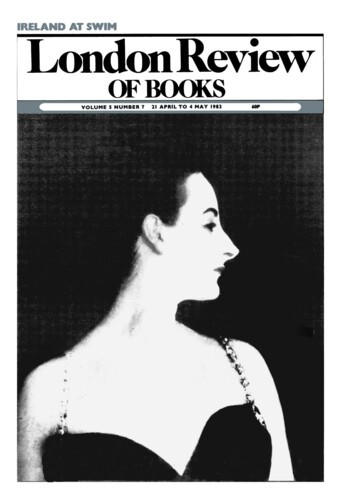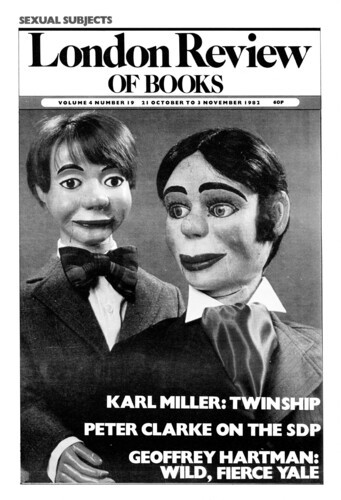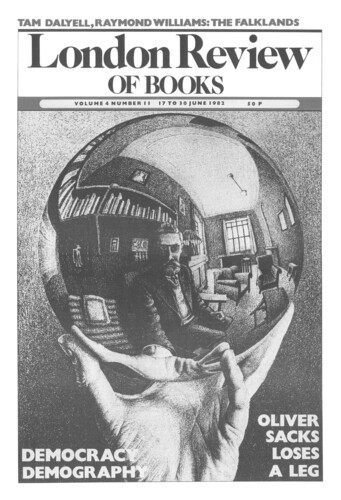Christopher Norris
Christopher Norris a lecturer in English at the University of Wales Institute of Science and Technology, is the author of a study of William Empson and of Deconstruction: Theory and Practice.
Mortal Scripts
Christopher Norris, 21 April 1983
In the present climate of polemical exchange one may doubt whether Gabriel Josipovici would take very kindly to being enlisted on the side of ‘literary theory’. Though his essays make reference to figures like Barthes and Derrida, they do so with an air of studied detachment, as if to forestall any charge of deeper complicity. If it comes to a straight choice between ‘interpretation’ and ‘theory’ – however unreal the terms of that choice – Josipovici is in the business of interpreting texts, and only has time for theoretical diversions when they happen to point up a reading or adorn a theme. Yet it is fair to remark that these essays (based on his Northcliffe Lectures for 1980-81, delivered at University College, London) could scarcely have taken their present form had it not been for Josipovici’s involvement with recent literary theory. Indeed, it is one of the merits of this book that it moves between ‘theory’ and ‘interpretation’ with an unforced naturalness which helps to discredit that false and misleading dichotomy.–
Wild, Fierce Yale
21 October 1982
Faculty at War
17 June 1982
Pieces about Christopher Norris in the LRB
Return of the real
A.D. Nuttall, 23 April 1992
The idea has got around – among ‘advanced’ thinkers of various political persuasions – that realist epistemologies are a thing of the past, that truth values in criticism...
Theory and Truth
Frank Kermode, 21 November 1991
The autumn catalogues of some very enterprising publishers announce as many books as usual under the rubric Literary Criticism, or possibly more, but few have titles of a sort that, even ten...
Paul de Man’s Abyss
Frank Kermode, 16 March 1989
Paul de Man was born in 1919 to a high-bourgeois Antwerp family, Flemish but sympathetic to French language and culture. He studied at the Free University of Brussels, where he wrote some pieces...
Sabotage
John Sturrock, 31 March 1988
Bait them and the Derrideans certainly rise. When the English version of Derrida’s Glas appeared last year in the United States*, I wrote a griping review of it, to regret mainly that a...
Untheory
Alexander Nehamas, 22 May 1986
The ancient quarrel between philosophy and poetry which Plato described, and in which he took part, is still being fought. Poetry today has become, more generally, ‘rhetoric’,...
Plain English
Denis Donoghue, 20 December 1984
Orwell took little care of his manuscripts. He didn’t anticipate that collectors of such things would pay real money for them, and that universities would think it a privilege to turn a...
Textual Harassment
Claude Rawson, 5 April 1984
In a recent review in this paper, Edward Said used the word ‘narrative’ about thirty times. This might have seemed a lot even in the present state of litcritspeak, and even in an...
Wild, Fierce Yale
Geoffrey Hartman, 21 October 1982
There are no Departments of Literary Criticism; and even proposals to have a Criticism question in official examinations can cause turbulence in academic circles. What is at stake? By now, of...
Read anywhere with the London Review of Books app, available now from the App Store for Apple devices, Google Play for Android devices and Amazon for your Kindle Fire.
Sign up to our newsletter
For highlights from the latest issue, our archive and the blog, as well as news, events and exclusive promotions.



